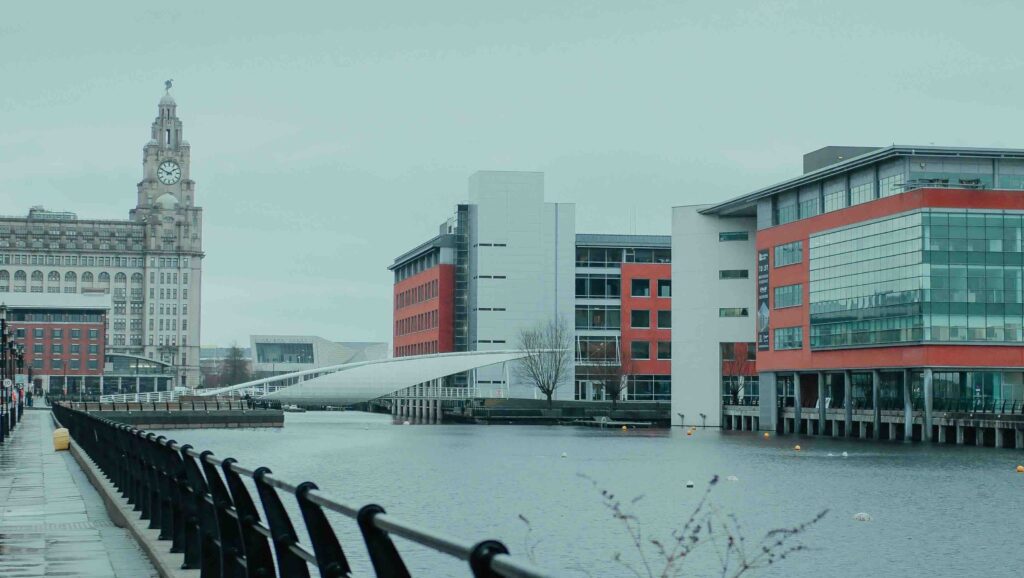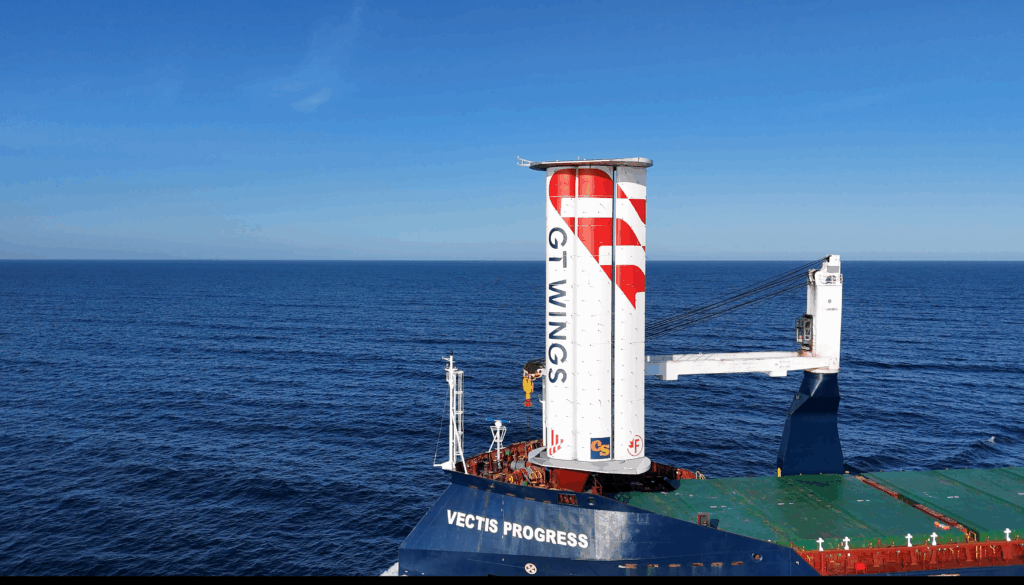More than £1.1 billion awarded to UK coastal towns to boost marine green tech

Coastal communities across the UK are set to benefit from more than £1.1 billion in combined government and industry funding for the maritime sector aimed at driving growth, creating jobs, investing in green tech and accelerating decarbonisation in the maritime sector.
The package, which was announced on the opening day of London International Shipping Week (15 September 2025), comprises £700 million of private investment into major ports and industry players, alongside £448 million of government funding targeted at cutting emissions from UK shipping.
Public investment will be channelled through the UK SHORE programme, which supports the development of clean maritime technologies and alternative fuels, including electric, hydrogen, ammonia, methanol and wind power.
Previous UK SHORE projects have ranged from electric charging infrastructure for ports, delivered by Aqua Superpower, to smart technology developed by Waterwhelm, which can produce hydrogen from recycled wastewater to generate electricity.
Since its launch, UK SHORE has awarded £240 million across more than 200 projects nationwide, creating an estimated 750 jobs and bringing a number of pilot technologies into active use.
This new funding will be allocated to projects in due course.
UK SHORE
Transport secretary, Heidi Alexander, says: “Today’s £1.1 billion boost for the maritime industry will supercharge growth and jobs in our coastal towns and cities – making the UK one of the best places in the world to invest.
“We’re committing almost half a billion to cut carbon emissions from shipping – steering us towards net zero by 2050 and cementing Britain’s place as a clean energy superpower through our Plan for Change.”
As part of the UK SHORE programme, the government provides funding to businesses and academia, enabling them to take forward innovative, green projects and leverage further investment from the private sector to deliver real-life technology, which reduces carbon emissions from shipping.
The newly appointed parliamentary under secretary of state for transport, Keir Mather, has visited Cammell Laird dry dock at Birkenhead in Liverpool to see how £3.6 million of previous UK SHORE funding has driven a further £3.6 million in private investment for the installation of a zero-emission electric shore power system.
This system allows vessels at the site to plug into an electric grid source and run emission-free while docked, similarly to how electric vehicles plug into chargers to restore their battery. Cammel Laird estimates that once fully operational, the system aims to save the equivalent of the average annual fuel consumption of 20,000 cars and support 15 jobs.

David McGinley, group chief executive officer at APCL Group, comments: “APCL Group is delighted to welcome the new Minister for Maritime. APCL Group is a critical supplier to the government, and as such, the meeting provides an opportunity to showcase the current shipbuilding and ship repair projects at our Birkenhead facility.
“APCL is proud to continue our long-standing partnership with the MoD, the Royal Navy and the Royal Fleet Auxiliary, with the group supporting 100 per cent of the RFA fleet. We will also showcase APCL Cammell Laird’s brand new state of the art shore to ship power technology, a £7 million project that has been part-funded by a £3.5 million grant from the department for transport’s Clean Maritime Demonstration Competition Round 4 (CMDC4).
Another success story includes Aqua Superpower, which, through almost £6 million UK SHORE funding, has successfully installed a network of chargepoints across the south coast of England and London. The project estimates the network could reduce emissions by up to 2,800 tonnes of CO2 per year with eight 75kW chargers in full operation. Following UK SHORE funding, Aqua Superpower have successfully expanded, building local charging networks spanning 59 sites across Europe and the United States.
This is alongside £3.3 million for FastRig wingsails, built in Scotland by Smart Green Shipping, which can reduce fuel and emissions on vessels by up to 40 per cent a year.
Overall, previous maritime decarbonisation funding has delivered over £110 million in direct private investment and benefitted over 500 UK companies, including 250 SMEs, the government reports. This is designed to help the UK continue charting a course to carbon free shipping by 2050.
The government has also been working closely with industry to facilitate greater investment in UK ports, supporting jobs, skills and innovation and honing Britain as a global hub for international shipping.
As part of this work, Peel Ports has today announced £300 million for its Liverpool, Hunterston and Great Yarmouth ports, while NatPower Marine has unveiled £250 million for shoreside power, which is estimated to support over 2,000 skilled jobs in engineering, construction and green technology services across the UK, particularly within local port communities. Furthermore, the Port of Tyne’s £150 million North Side development site could potentially create up to 12,000 jobs in offshore wind and manufacturing.
The government says it will complete a revised national policy statement, covering England and Milford Haven in Wales, to help ports ‘save time and money on planning applications to expand sites, opening up jobs and opportunities in coastal communities’.
Proposals aim to streamline the planning process for ports in England and expedite planning applications by more clearly outlining the needs for port facilities and how to design applications to avoid process delays.
Claudio Veritiero, CEO, Peel Ports Group, says: “Peel Ports Group has invested £1.5 billion over the past decade, futureproofing our operations, strengthening vital supply chains and creating hundreds of jobs across the regions where we operate.
“Looking ahead, we plan to invest a further £1 billion over the next five years, with projects already underway that include new port-centric warehousing, steel and metals facilities and major upgrades at key ports. These developments underline our long-term commitment to building capacity and efficiency across our network, while supporting growth and productivity in the wider UK economy.”
Matt Beeton, CEO at the Port of Tyne, says: “Accelerating offshore wind, renewable energy and advanced manufacturing is a national priority and requires decisive action. Boosted by industrial strategy zone status, our 230-acre north-side expansion to the Tyne clean energy park will help the UK execute its 2030 clean power target.
“Located close to emerging North Sea wind arrays, this nationally strategic site offers deep-water access and a major development footprint to enable the creation of world-class infrastructure to support a growing supply chain offering.”
Stefano D.M. Sommadossi, CEO of NatPower Marine, says: “We are investing over £250 million in the UK over the next five years to accelerate the rollout of shore power infrastructure – a gamechanger for both the maritime industry and our coastal communities.
“This investment is more than just ports and cables – it’s about people and prosperity. The overall programme is expected to create over 2,000 skilled jobs, particularly within local port communities. These are real jobs with long-term benefits, embedded in regions that need investment the most. We stand ready to work closely with government to accelerate this innovation in maritime energy transition even further.”
In an effort to also recognise the importance of the cruise industry to the UK economy, which contributes £5.8 billion and supports 60,000 jobs, the department is launching the UK cruise growth plan during LISW. This includes commitments from government and the cruise industry, to further support the sector by securing continued private investment for growth, benefitting the UK economy, UK ports and coastal communities.
LISW will run from 15 to 19 September 2025.













